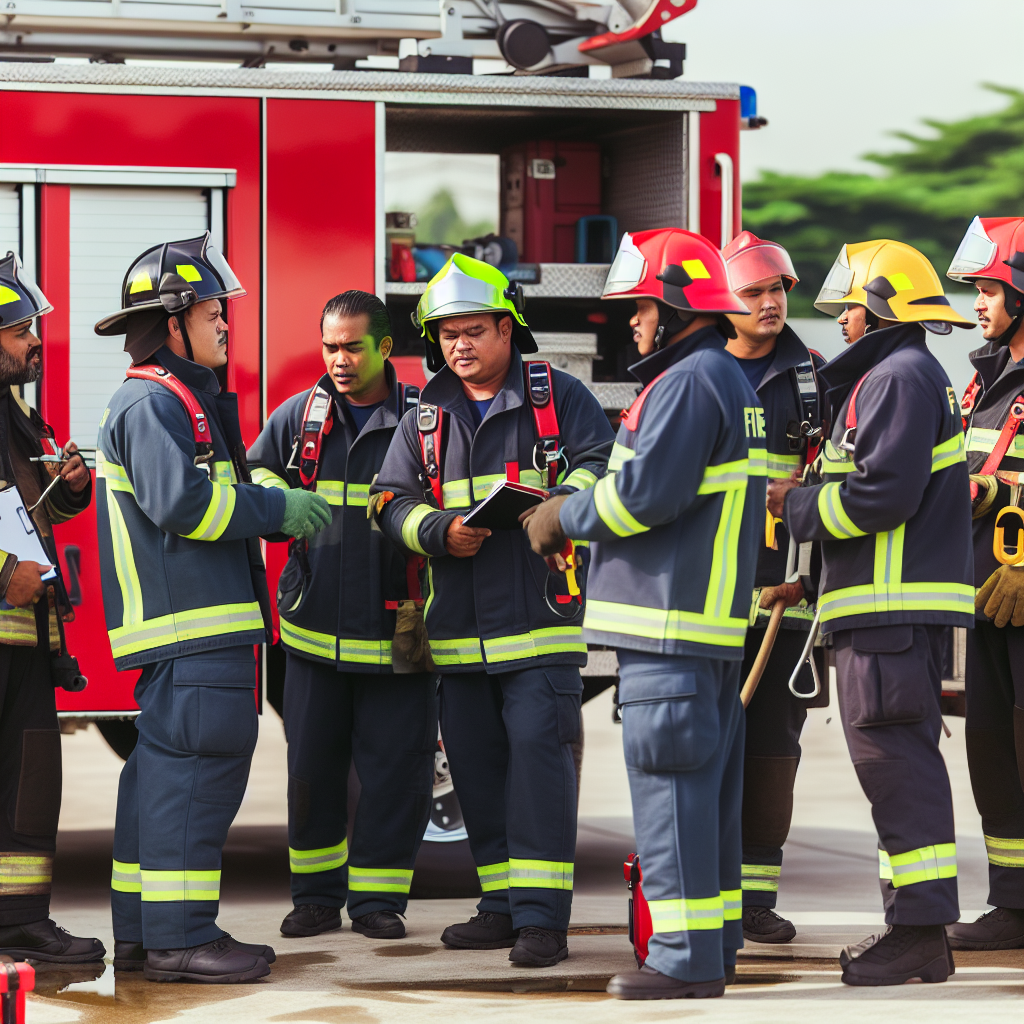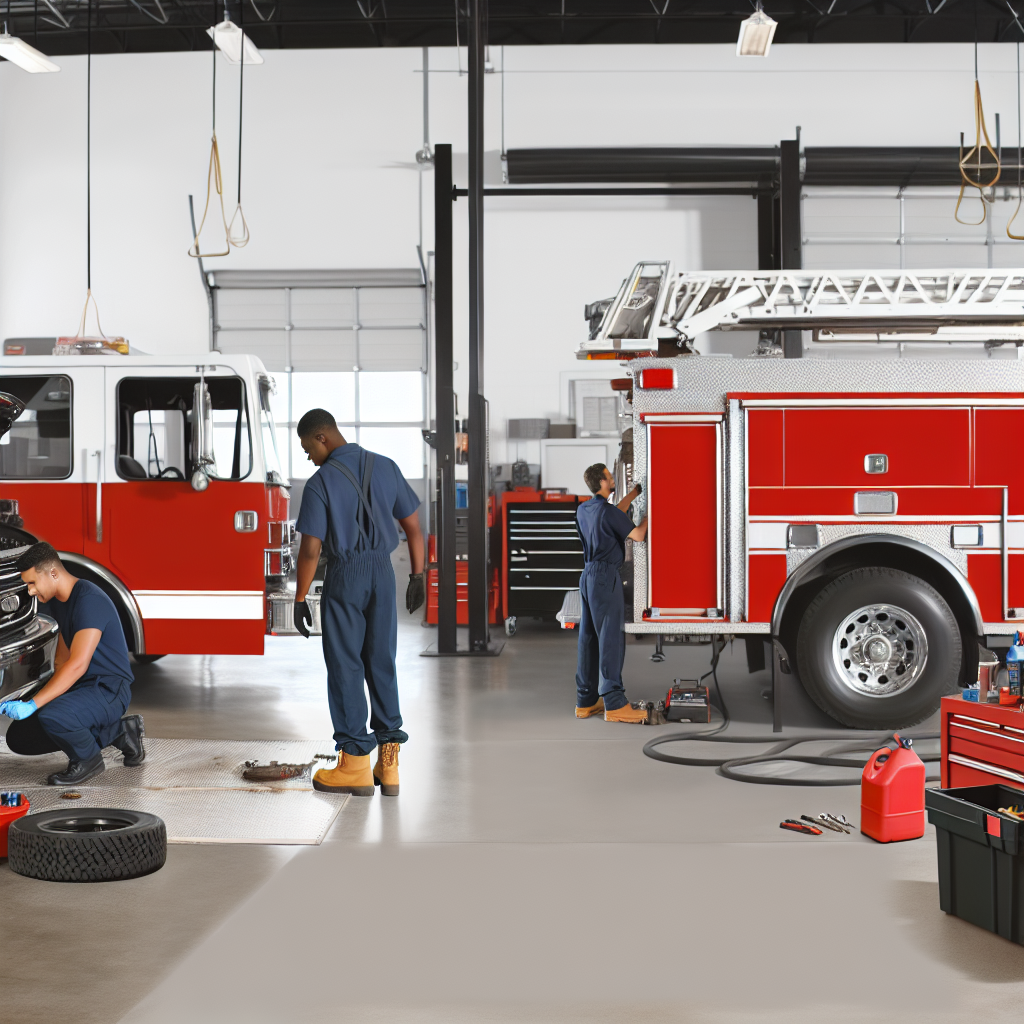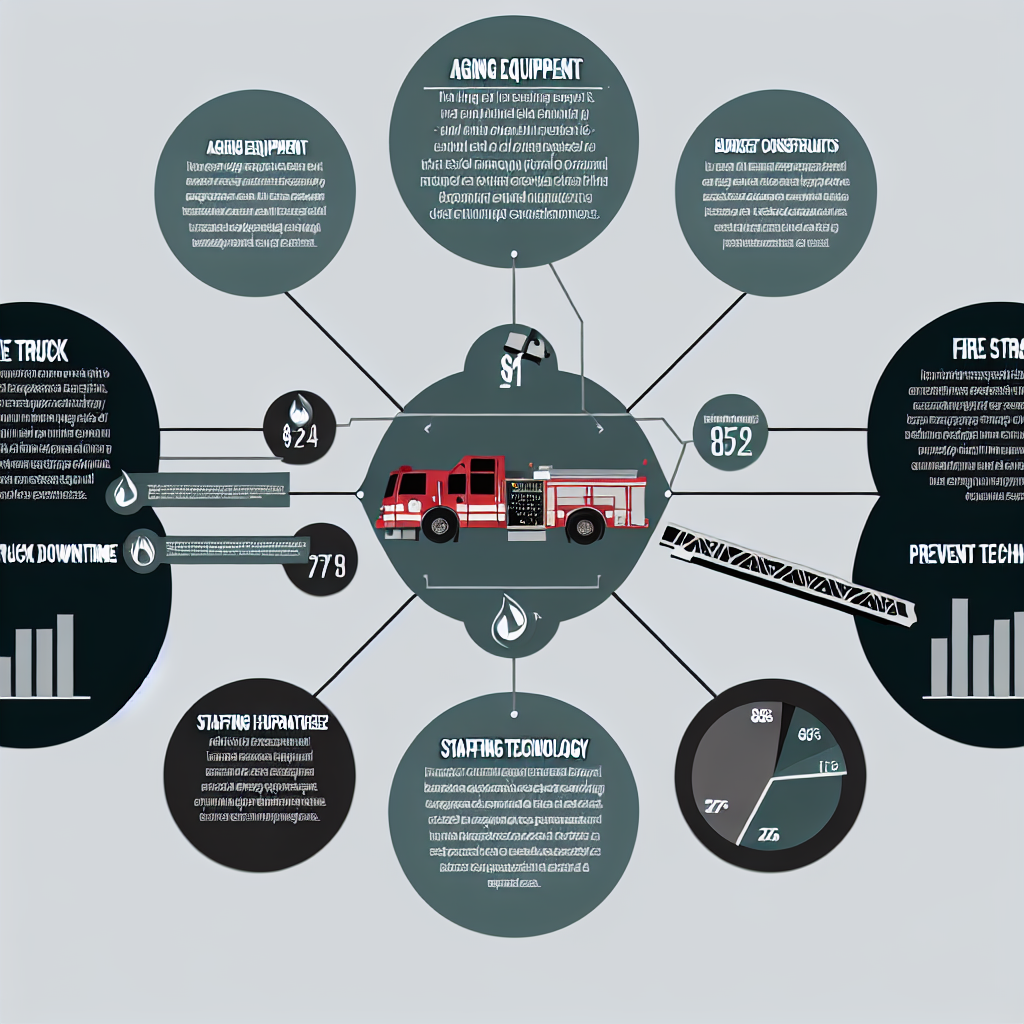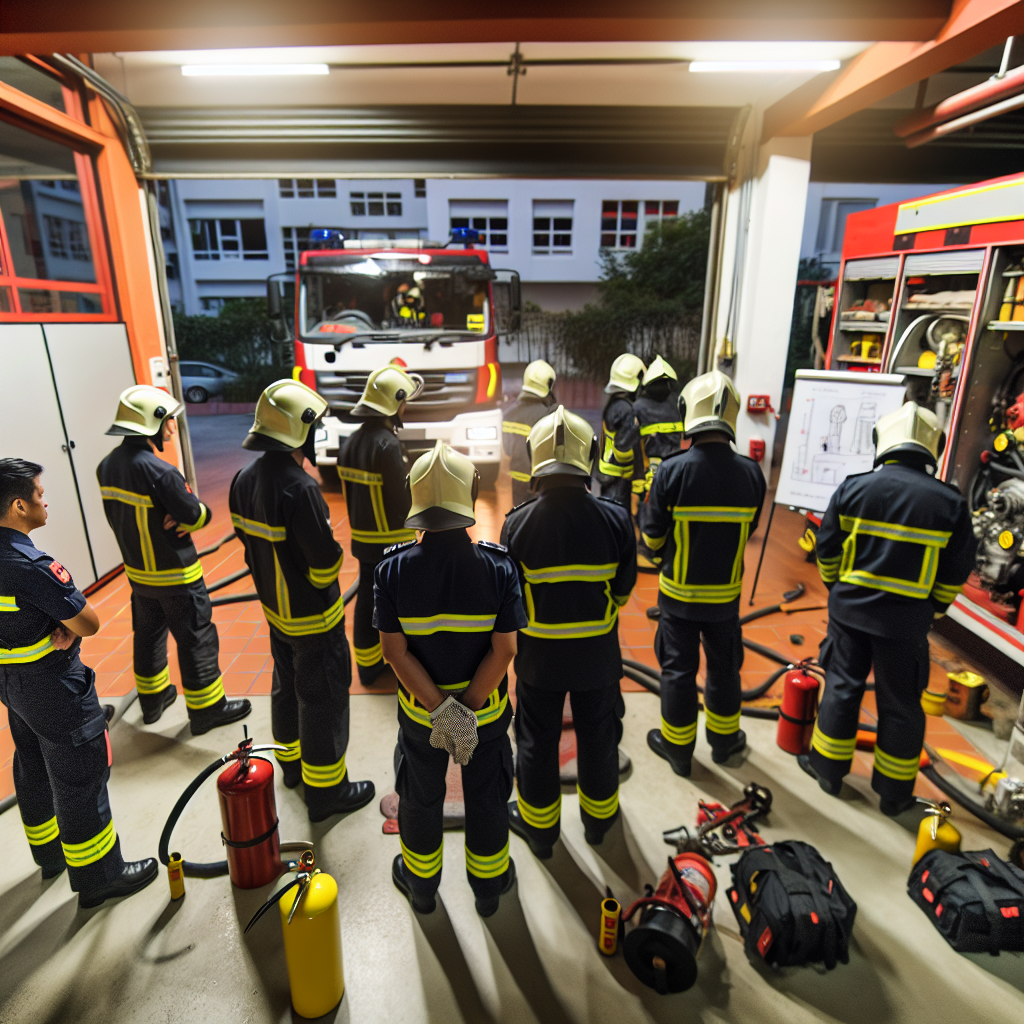Importance of Reliable Fire Trucks
In emergency services, reliable fire trucks are crucial. Fire safety experts emphasize that regular maintenance is key to ensuring community safety during emergency response situations. If maintenance is neglected, equipment can fail, compromising operational readiness and effective emergency response training.
Reports show that since 2016, there has been a 50% increase in fire department vehicles being sidelined due to breakdowns in Seattle. An audit in Atlanta revealed that one-third of the city’s fire vehicles were past their life cycles, highlighting the need for regular maintenance to keep these trucks ready. Proper maintenance not only extends the life of the vehicles but also plays a pivotal role in ensuring effective response during emergencies, thereby enhancing fire service safety.
Fire Truck Maintenance Practices
Fire truck maintenance involves careful inspection, servicing, and repair of equipment to meet the unique challenges of firefighting. Specialized service training equips fire department personnel with the knowledge and skills necessary for maintaining and operating their vehicles efficiently, all while ensuring safety standards are upheld.
Pierce Manufacturing recognizes the importance of training and provides custom solutions for different fire apparatus. By offering practical classes and expert guidance, Pierce aims to boost the performance of fire trucks and enhance the safety of the communities they serve.
Benefits of Customized Service Training
Customized service training provided by Pierce Manufacturing is fundamental in extending the lifespan of fire trucks, enhancing their performance, and ensuring the safety of the firefighters who rely on these crucial apparatuses. This training is tailored to the unique specifications of each vehicle, allowing for a focused approach that maximizes the efficiency and safety of fire operations.
Extending Vehicle Lifespan
One of the key benefits of customized service training is its impact on extending the lifespan of fire trucks. By equipping personnel with the knowledge to identify and rectify minor issues before they escalate, departments can significantly reduce downtime and costly repairs. Industry sources indicate that regular training not only improves maintenance practices but also enhances the overall longevity of fire and rescue vehicles. Reduced downtime translates to better operational availability, ensuring that trucks are ready when needed most.
Enhancing Performance
Customized training programs ensure that technicians understand the unique features of their specific fire apparatus. This knowledge is crucial for performing inspections, routine maintenance, and necessary repairs effectively. As one industry expert noted, “A fire apparatus is designed and manufactured to the unique specifications of a fire department — shouldn’t the service and maintenance training be customized for each apparatus?” Such tailored training enhances the overall performance of the vehicles, allowing them to operate at peak efficiency during critical emergency responses.
Ensuring Safety
Safety is paramount in emergency response situations, and well-trained technicians are key to ensuring that equipment functions optimally. Customized service training not only equips technicians with essential skills but also instills a safety-first mindset. According to Trish Serratore, Senior Vice President of ASE, “Training and certification are essential elements to retention,” highlighting the importance of a qualified workforce in maintaining safe operating procedures. Regularly updated training helps ensure that firefighters can rely on their apparatus to perform safely under pressure, ultimately saving lives.

Image depicting firefighters engaged in training about fire truck maintenance, focusing on teamwork and hands-on experience.

Image depicting a group of satisfied firefighters after a training session, showcasing teamwork and readiness, celebrating their achievements together in front of their fire truck.
Classes Offered by Pierce Manufacturing
Pierce Manufacturing offers a range of fire truck maintenance and service training classes designed to enhance technicians’ skills and knowledge for optimal performance in the field. Training generally takes place over a 16-hour, 2-day format that combines classroom lectures and hands-on training to ensure comprehensive understanding and practical application. Below are some of the key classes available:
-
Chassis Electrical
Focuses on non-multiplex electrical systems in Pierce chassis. Covers electrical system diagnostics, component identification, and troubleshooting techniques. -
Command Zone™ Systems
Detailed instruction on Command Zone™ electrical systems, focusing on diagnostics and troubleshooting of the features for enhanced operational efficiency. -
Preventative Maintenance
Designed to teach key procedures to maintain fire apparatus per NFPA and DOT standards, ensuring compliance and safety through routine inspections and maintenance schedules. -
TAK-4® Suspension Maintenance
Explains the principles of TAK-4® Independent Front Suspension, including maintenance and troubleshooting methods to maintain optimum ride quality and performance. -
SRP/Frontal Protection
Provides insights into the installation, troubleshooting, and repair of Side Roll Protection (SRP) and Frontal Impact Protection (FIP) systems. -
CAFS/Husky Maintenance
Explores operation, maintenance, and repair of Pierce’s Husky™ Foam Systems and Hercules™ Compressed Air Foam Systems (CAFS). -
Air Conditioning Systems
Covers repairs and maintenance of Pierce-installed air conditioning components, ensuring comfort for firefighters and operational efficacy. -
Aerial Maintenance
Focused on repair and maintenance of Pierce aerial ladders and platforms; includes essential safety checks and operational protocols. -
Pierce PUC™ Pump Maintenance
Offers insight into the operation and complete disassembly of Rear Engine Power Take-Off (REPTO) driven water pumps, emphasizing maintenance best practices. -
Air Brakes, ESC, ABS Troubleshooting
Covers air brake theory and the necessary procedures for maintaining chassis air brake systems to ensure effective braking performance. -
Ascendant Mid Mount
Teaches maintenance of Ascendant Class 100′ Aerial towers through blended learning, focusing on hands-on training style. -
TAK-4 T3™
A one-day class dedicated to maintenance and troubleshooting features of TAK-4 T3 systems highlighting essential best practices. -
Tiller Aerial Maintenance
Focused on the repair and maintenance of Pierce® Tiller Aerial ladders, ensuring safety and performance through training.
These specialized classes not only improve the technical abilities of fire department technicians but also align with best maintenance practices. By providing training that is tailored to the specific apparatus, Pierce Manufacturing ensures that technicians are well-equipped to carry out effective maintenance, which ultimately leads to safer operations and improved longevity of the fire apparatus.
Comparison of Training Offerings by Pierce Manufacturing
| Class Name | Duration (Hours) | Key Focus Areas |
|---|---|---|
| Chassis Electrical | 16 | Diagnostics, Component Identification, Troubleshooting |
| Command Zone™ Systems | 16 | Electrical Systems, Diagnostics, Operational Efficiency |
| Preventative Maintenance | 16 | NFPA and DOT Standards, Routine Inspections |
| TAK-4® Suspension Maintenance | 16 | Maintenance, Troubleshooting, Ride Quality |
| SRP/Frontal Protection | 16 | Installation, Troubleshooting, Repair Systems |
| CAFS/Husky Maintenance | 16 | Operation, Maintenance of Foam Systems |
| Air Conditioning Systems | 16 | Maintenance of AC Components |
| Aerial Maintenance | 16 | Repair, Safety Checks, Operational Protocols |
| Pierce PUC™ Pump Maintenance | 16 | Operation, Disassembly of Water Pumps |
| Air Brakes, ESC, ABS Troubleshooting | 16 | Air Brake Theory, Maintenance Procedures |
| Ascendant Mid Mount | 16 | Maintenance of Aerial Towers, Hands-on Training |
| TAK-4 T3™ | 8 | Maintenance Best Practices for TAK-4 T3 Systems |
| Tiller Aerial Maintenance | 16 | Repair, Safety and Performance of Tiller Aerials |
This table outlines the various classes offered by Pierce Manufacturing, giving insights into their training duration and focus areas. Each course is designed to enhance the skills and knowledge of fire department technicians, promoting improved maintenance practices and operational safety.
Preventive Maintenance and Its Importance
Preventive maintenance is an essential aspect of fire truck upkeep, ensuring that these vital vehicles are ready to respond when emergencies arise. This approach involves conducting routine inspections and scheduled services, which allow fire departments to identify and remedy potential issues before they escalate into significant problems.
The importance of preventive maintenance cannot be overstated. A systematic maintenance program contributes significantly to the operational effectiveness of fire trucks, enhancing their readiness during emergencies. Fire departments that implement comprehensive maintenance strategies report significant improvements in reliability. For example, a fire department in Osaka noted a remarkable 40% reduction in unexpected breakdowns after enrolling in a preventive maintenance program.
Training personnel is critical to ensuring that these maintenance schedules are adhered to effectively. Skilled technicians can execute regular maintenance checks and repairs accurately, which helps to maintain the integrity of the fire apparatus. Notably, organizations that adopt preventive strategies see a 35% reduction in equipment downtime, allowing fire departments to operate at peak efficiency.
Safety is another critical benefit associated with preventive maintenance. According to the National Institute for Occupational Safety and Health (NIOSH), routine maintenance helps to identify mechanical issues before they become hazardous, thereby protecting firefighters and the public on emergency scenes. In fact, proper maintenance practices can reduce incident rates by approximately 20%.
Moreover, adhering to a preventive maintenance schedule can significantly extend the operational lifespan of fire trucks. The National Fire Protection Association (NFPA) outlines that frontline fire engines should ideally be replaced or reassigned after 15 years. However, with diligent maintenance, these vehicles can often serve effectively beyond their expected service life. Correct preventive practices can lead to an increase in machinery life by nearly 25%, allowing departments to maximize their investment in firefighting resources.
In summary, the role of preventive maintenance in fire truck upkeep is indispensable. By promoting thorough training on maintenance practices and prioritizing routine inspections, fire departments can enhance vehicle performance, ensure firefighter safety, and maximize the lifespan of their fire apparatus.

Image depicting a fire truck undergoing maintenance in a professional garage setting, highlighting the importance of vehicle upkeep in emergency services.
Conclusion
In summary, Pierce Manufacturing’s Fire Truck Maintenance and Service Training presents vital advantages for fire departments aiming to enhance safety, efficiency, and community readiness. By providing customized training designed to meet the specific needs of each fire apparatus, Pierce empowers fire personnel with the knowledge and skills necessary for effective maintenance. This results in prolonged vehicle lifespan, heightened operational efficiency, and a robust commitment to safety protocols.
Moreover, with practical, hands-on classes and ongoing support from master technicians, fire departments can ensure their trucks remain in top condition, ready to respond in emergencies. Investing in tailored training fosters a culture of preparedness within the community and significantly contributes to the safety of both firefighters and the public they serve.
Fire departments are strongly encouraged to sign up for these specialized training options from Pierce Manufacturing. By doing so, they will not only uphold the highest standards of safety and performance but also make a proactive commitment to protect their personnel and the communities they serve. Don’t wait until it’s too late; take the first step towards enhancing your department’s capabilities today!
Case Studies and Testimonials of Successful Training from Pierce Manufacturing
While specific case studies or detailed testimonials from fire departments regarding the direct impact of Pierce Manufacturing’s training on fire truck performance and community safety are limited, it is recognized that these training programs provide substantial benefits across various fire departments. These training programs, tailored to fit the unique specifications of different fire apparatus, are focused on enhancing operational efficiency, extending vehicle lifespan, and improving overall safety.
One of the notable advantages of Pierce’s training is the reduction in vehicle downtime. Fire departments that undergo training are better equipped to conduct routine maintenance and inspections, allowing them to identify minor issues before they escalate into significant problems. This proactive approach translates into increased operational readiness, ensuring that fire trucks are available and ready when emergencies arise.
Additionally, hands-on training equips technicians with a better understanding of the specialized features of their respective fire trucks. This results in optimized performance metrics, allowing vehicles to operate at peak efficiency during critical situations. For example, it is widely reported that departments implementing training programs experience significant reductions in unexpected breakdowns, thereby improving reliability and safety during emergency operations.
Moreover, ongoing support from Pierce Manufacturing, facilitated through their expansive dealer network, ensures that fire departments have access to knowledgeable technicians even after completing their training. This network enhances the reliability of apparatus and supports community safety by ensuring that fire departments can efficiently manage maintenance and service needs.
In summary, while specific endorsements may be sparse, the overall design and implementation of Pierce Manufacturing’s training programs aim to significantly enhance fire truck performance and, in turn, foster a safer environment for communities served by these vital emergency vehicles.

This infographic illustrates common issues faced by fire trucks over the years, covering topics such as aging equipment, budget constraints, staffing shortages, complex technology, and the need for preventive maintenance. The statistics showcase the importance of regular upkeep and tailored training for personnel.

